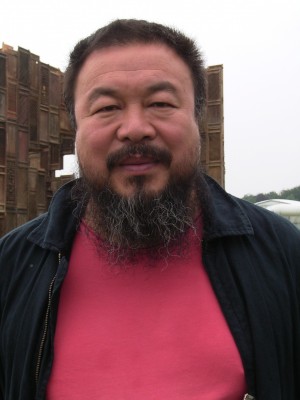A screening of the film “Ai Weiwei: Never Sorry” in the Johnson Center cinema Nov. 14 at 6:30 p.m.
The showing is hosted by Mason’s Film and Media Studies department, in conjunction with the English Department and Honors Collegeand will be free and open to the public.
This film, a documentary by first-time director Alison Klayman, depicts the story of a Chinese artist who expresses his beliefs and reaches out to the Chinese people through controversial works.
Weiwei has continued his work despite government backlash, which has included beating, and the destruction of a newly built studio.
According to a description of the documentary from Mason’s Film and Media Studies webpage, Weiwei describes his work this way:
“As an artist, I value other artists’ efforts to challenge the definition of beauty, goodness, and the will of the times. These roles cannot be separated. Maybe I’m just an undercover artist in the disguise of a dissident; I couldn’t care less about the implications.”
Beth Hoffman, an assistant professor of Mason’s English department, introduced the initial idea of this event.
The idea spurred from an Honors 122 course she teaches this semester, Reading the Arts: Performance, Participation and Social Change.
“The course introduces students to a particular area of practice within the contemporary arts scene that takes social relationships as its object,” Hoffman said.
The material she teaches relates directly to Weiwei’s work and its influence over social issues.
Weiwei’s main motive behind his work is to challenge Chinese censorship and draw attention to many issues being suppressed by the government.
“He has put himself at enormous personal risk to try and draw attention to and resist censorship in China, and so I feel that his example makes the stakes surrounding social practice and what it can accomplish really tangible,” Hoffman said.
However, his work is very interdisciplinary and reaches many aspects of cultural and social issues.
Weiwei also utilizes social media in his work, a very prevalent device in today’s world.
“We all use social media; we all find ourselves part of a global community, and we’re all trying to make sense of what that means–politically, ethically, legally, personally. Ai’s story is one that we all should know,” Hoffman said.
This documentary aims to relate his story to all audiences. Students across almost any discipline will be able to find connections between their work and Weiwei’s.
Following the screening, there will be a question and answer session with Hasan Elahi, Associate Professor of Art at the University of Maryland.
Elahi has used similar methods of art and social media to spread cultural issues, and has dealt with lawful consequences himself.
Elahi has a story similar to Weiwei: as he was arrested in the U.S. under terrorist suspicions.
In backlash, he began a website to show his daily whereabouts in order to prove his innocence to the FBI.







Comments